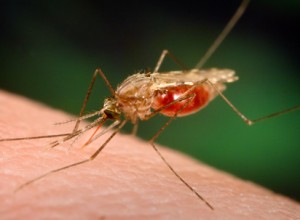Fight against malaria disease at crossroad – Prof Ansah
 Professor Evelyn Korkor Ansah, Director of Centre for Malaria Research, IHR- University of Health and Allied Sciences (UHAS) has said the fight against malaria demands rethinking to undertake things differently for acceleration in progress towards ending it.
Professor Evelyn Korkor Ansah, Director of Centre for Malaria Research, IHR- University of Health and Allied Sciences (UHAS) has said the fight against malaria demands rethinking to undertake things differently for acceleration in progress towards ending it.
“It begins with a change in our mindset and attitude towards malaria. We cannot continue to do the same things and expect to get different results.
“Different things will achieve the expected impact only if we take the context into consideration, listen to the people within the context and partner with them to implement the desired outcome.”
Prof Ansah made these statements in her ‘Professorial Inaugural Lecture’ at the UHAS, Ho main Campus the topic, “Quo vadis? A Context-Driven Approach to Ending Malaria.”
This is the fourth in the series, which is an innovation by the University.
She said in Ghana, suspected malaria accounts for over 41 per cent of all cases reported at the out-patient-departments with 18 per cent of all admissions due to confirmed cases, responsible for between 13-50 per cent of medical reasons for school absenteeism and averagely cost $6 – $49 for households to treat the disease.
Prof Ansah said 11 countries including Africa accounted for 70 per cent cases and deaths with 10 of the countries in Sub-Saharan Africa responsible for 98 per cent case and death in 2019.
She said malaria is preventable and treatable but continues to cause significant illnesses, deaths and affected livelihoods around the world with 229 million cases reported in 2019 manifesting in 87 endemic countries with some 409,000 deaths in the same year.
She said despite the staggering figures, elimination of the disease was possible backed by 50 years of experience, research, innovation and investment due to effective tools, strong product pipelines, lessons from other eradication efforts and renewed energy and commitment.
Prof Ansah, also a reverend of the Covenant Community Church, Accra, said Algeria eliminated malaria and had received the World Health Organisation (WHO) certification in 2019, El Salvador with a population of six million people have been certified Malaria free in 2021 with China, the most populous country of 1.4 billion people has managed to maintain a zero malaria case in the last three years and on stream to be certified in due course.
She said the options for moving forward is to turn right onto the elimination pathway, which is possible and avoid the business-as-usual attitude and reversal of gains being made.
Professor John Gyapong, Vice Chancellor, University of Health and Allied Sciences (UHAS) said the burden of malaria continues to be high, which needs a conscious effort of applying resources and investment in human and finances to surmount the challenge.
He said academia had contributed immensely to global health delivery in diverse ways with products of Ghana and especially UHAS making giant strides.
He said Ghanaian scientists continue to serve at the echelon of decision-making with international institutions including the World Health Organisation (WHO) and among those who assess and certify countries denoting that the capacity of researchers and scientists to influence decision making in the country is on hand.
He encouraged duty-bearers to look at the low hanging fruits to improve to stem the malaria burden in the country as well as healthcare delivery in general stating academia would continue to generate knowledge and it was up to industry to move this from the shelves for the population.
“Avoid looking, staring in the skies, go for the low hanging fruits,” urging researchers to start modestly from the house level, community, country to solving societal health problems.
He described Prof Ansah as a research icon appearing in 72 academic publication and peer-reviewed journals, 92 times in Research Gate, a science documentation platform, 61 times in Scopus and severally on Google Scholar.
He said the researcher is ranked by the World Science and University Ranking for 2021, placing sixth in UHAS, 25 in the country, 1,139 in Africa and 93,009 globally.
Prof Ansah has served on many WHO Committees, locally, regionally and internationally and spoken on many fora.
The event was patronised by interest groups in academia, research and social settings including family and friends.
Source: GNA
